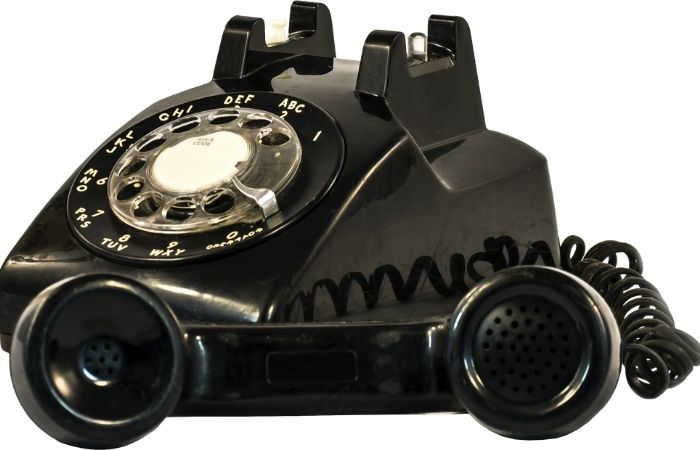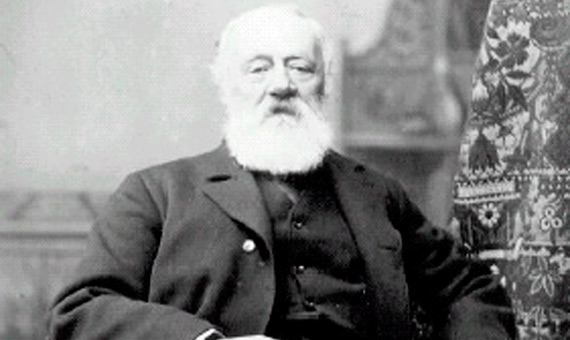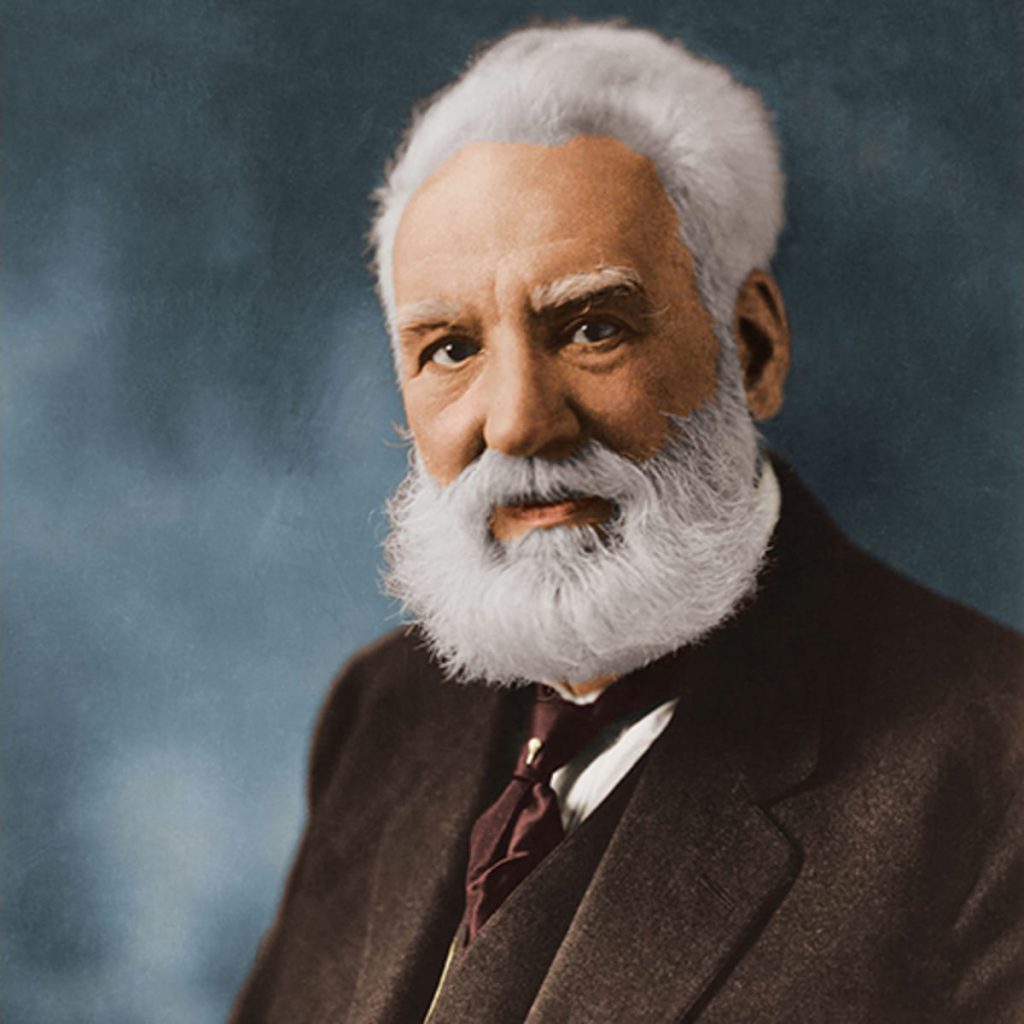Who is Antonio Meucci?
Who invented the telephone? This is a question that many people think they have the right answer to. Have you ever heard of Antonio Meucci? Antonio Santi Giuseppe Meucci is often called the first inventor of the telephone, though it’s also possible that he was just an early user.

This Italian immigrant from Turin came up with many other inventions, including one for communicating through telephones without speaking into them!
Antonio Santi Giuseppe Meucci was an Italian phone inventor who created the first telephone over 150 years before Alexander Graham Bell. Many people know him for being a voice communication device developer, but he also came up with many other innovations that can be considered ground-breaking.
Who Invented the Telephone Really?
Was it Alexander Graham Bell who had his patent on it in 1876, or was it Antonio Meucci who had his patent in 1871? So who really invented the telephone? Unfortunately, the answer to this question is not a simple one.
Antonio Meucci was an inventor who lived in the 1800s. He was born on April 13, 1808, at Via dei Serragli 44, which is now a museum dedicated to him and his work! In this historical building, you will be able to learn all about how he came up with what we know today as “wireless telegraphy.”
Meucci was admitted to the Academy of Fine Arts at the age of 15 in 1821. He studied chemistry and engineering for six years while working part-time as an assistant gatekeeper. The reason for working as an associate gatekeeper was to finance his studies.
The late 1800s were a time of great innovation in Italy, where stage designers and technicians like Meucci took on new roles. Theaters across Europe hired him to design sets that would be used for plays or operas alike- all while working as an assistant at the renowned opera house Teatro Della Pergola!
Meucci created an acoustic pipe telephone to allow communication between the stage and control room at La Pergola theater in 1834, which is where he based this type of phone. The original telephone idea came from ship’s telegraphs that were previously used for sending messages without having anyone on board but are now obsolete.
The person who would later be recognized as the founder of telecommunications, Antonio Meucci, designed what is considered to this day an early form of the telephone in 1834. The acoustic pipes featured a system for communication between the stage and control room at Teatro Della Pergola using sound waves.
In 1834, Luigi Meucci married Ester Mochi. The couple had met at the Teatro Della Pergola, where she worked as a costume designer.
In 1833, Antonio Meucci was falsely accused of being part of a conspiracy and spent three months in jail.
The Science Career
In 1835, Turin-born Meucci and Ester, his wife, moved to Cuba, where he accepted a position as an engineer at the theater, Gran Teatro de Tacon in Havana. Meucci’s work in Cuba would eventually make him famous worldwide, especially after he invented a water purification system that helped bring clean, safe drinking water for residents of Havana.
Meucci revolutionized the entertainment industry with his incredible inventions. He changed how people thought of theater and what they expected from it. He created machines that made everything happen on stage all by themselves! In 1844, Meucci obtained a four-year contract for electroplating supplies used in army fortifications. He also established an electroplating factory, which allowed him financial stability and gave birth to many other innovations. One of the innovations was the automatic moving curtains (1847).
After ending his contract with the governor, Antonio Meucci became interested in finding a way of relieving pain using electricity. He experimented with it more and developed a technique that would become known as “electrophonic.”
During one treatment for migraine in his patient, he accidentally came up with something revolutionary- an invention called telegrafo parlante or Talking Telegraph. It seemed like this discovery would let people communicate through speech rather than being restricted to written words. It was a significant advancement at its time! His success encouraged him to keep inventing, so he could make living easier.
Meucci and his wife left their native Italy to live in America. They settled on Rizzo Street, later renamed Clifton Place after Staten Island dentist Daniel Laidlaw Jr.

In 1851, Meucci built the Clifton Brewery with his savings from Cuba to finance it as a joint venture between himself and Garibaldi. The tallow candle factory he created was also an early example of its kind in America.
He continued to investigate electromagnetic voice communication for many years and, in 1856, succeeded in broadcasting his voice through wires. He did this by setting up a telegraph-like device that allowed him easy access from home to communicate easily with his wife, who was ailing with rheumatoid arthritis.
He designed a working model that connected him both downstairs and upstairs to speak freely with his wife without any interruptions. His prototype had been completed by 1856 when it became clear how valuable this invention might be for everyday life.
Meucci was an ingenious inventor with many inventions, but he lacked the finances to support them. As a result, his candle factory became bankrupt, and his health declined drastically. In addition, he became sickly due to burns suffered while trying out some new designs.
Antonio Meucci did not give up on his telephone invention. On December 12, 1871, he set up an agreement with Sereno G. P Breguglia, Tremeschin Angelo, and Antonio Tremechins to form the Telettrofono Company. The company was for commercializing Meucci’s sound telegraph that would revolutionize communications. He applied for the patent caveat successfully in 1872.
However, he didn’t mention the electromagnetic transmission of vocal sounds. This means that there were no grounds from which Bell’s Telephone could have been denied legal rights. After three years, the patent bill lapsed due to a lack of interest from the government. In 1875, the patent was granted to A. Graham. Bells because his invention happened when the three-year period had lapsed.
Meucci also patented candle molds and a lamp burner, with more than one patent under his belt by age 43; this was when most men retired because they had finished inventing or designing new things.
A Race to the Patent
The worst happened in July 1871 when an explosion on the ferry in which Antonio Meucci traveled left him with severe burns. His wife, Ester, had to sell the telettrofono design to a pawn shop. The design, including his savings, was used for his treatment. After getting well, Meucci reclaimed the design from the pawnshop, but unfortunately, it had been sold!
When Antonio Meucci invented the Telettrofono Company with three other Italians, they warned him about the danger of not patenting his invention. However, he didn’t have enough money ($250 at that time) to pay for a full-blown patent and protect himself from competitors (who wanted access to it, as well). So he only managed to do a temporary legal notice called “patent caveat.” The cost was $20 per year, which did little more than just describe its kind of telephone.
Meucci was eager to show the world his invention and asked for permission from the Western Union Telegraph Company vice president. He provided them with details about what he had invented.
This included a copy of patent caveat, which are documents that outline an inventor’s idea before going through all formalities required by law. This makes sure that the invention cannot be patented anywhere other than its home country’s government, which has exclusive rights over its use. Unfortunately, after two years of waiting, Meucci received a response that they had lost all his documents.
The Italian immigrant, Antonio Meucci, realized that he would lose all rights and protections for the telephone invention without renewing his patent caveat, which had expired in 1872 (due to lack of money).
Alexander Graham Bell applied for his version on April 27, 1876, at George Washington’s office two years later. This was with Western Union Telegraph Company while working as an employee there. He contested every aspect across different lawyers who brought him into court, where it was proven fraud.

Surprisingly, there was no conviction because there were too many unanswered questions. For example, how did this man know about something being invented several miles away before even hearing about its existence?
The Trial
The Trial of Antonio Meucci was a pivotal moment in the history of telecommunications. The inventor’s defense at trial centered around his Memorandum Book, which contained noted drawings and records between 1862-1882; he argued that these were created before Alexander Graham Bell’s invention because they predated it by 15 years or more.
The United States government annulled the patent issued to Alexander Graham Bell on the grounds of fraud and misrepresentation after a series of decisions that left it up in court.
With a change in administration, charges of conflict of interest arose from the original trial.
The U.S. Attorney General dropped this lawsuit on 30 November 1897, leaving various issues undecided on their merits. However, during one deposition filed for an 1887 trial, Meucci claimed he had created his first working model telephone around 1834.
In 1887, Meucci took the stand as a witness in hopes of establishing his invention’s priority. Unfortunately, his evidence was disputed due to a lack of material evidence that could be used at trial, which bothered him greatly.
He knew how important it would have been for people like himself who had worked so hard to create something new without any reward or recognition from their peers thus far. Meucci’s argumentation skills left much room to hope, but eventually, all three cases were dismissed out-of-court.
The court found that Meucci’s device consisted of a mechanical telephone consisting of the mouthpiece and earpiece connected by a wire. Still, he never applied for patents because it was too late.
Like many other inventors from this period, Meucci’s work used earlier acoustic principles, which is why despite evidence such as previous experiments in England, France, or Germany, there wasn’t much they could do legally against him. Upon his death, all the cases were dropped.
Antonio Meucci was an Italian phone inventor who is often overlooked in history. The US House of Representatives published a resolution in 2002 stating that people should recognize his life and achievements for creating what became known as the telephone.
This came too late to benefit him, but it allowed him some recognition among great inventors such as Thomas Alva Edison. Unfortunately, on November 8, 1889, he passed away without ever getting any financial reward from these inventions, which made their mark on modern society.
Credit to Meucci
We can all tell that the person who invented the telephone was, in fact, Antonio Meucci.
All credit should go to him because he is the actual inventor of the telephone and not Alexander Graham Bell!
Antonio Meucci is a forgotten hero who deserves recognition for his ingenuity. He made other major inventions in addition to the telephone, and it’s about time the world gave him more credit!

Community of passionate writers and content creators who share a love for Italian heritage, culture, travel, food, and the Italian-American community. Our mission is to celebrate Italy’s rich history and traditions and connect with others who share the same passion.

